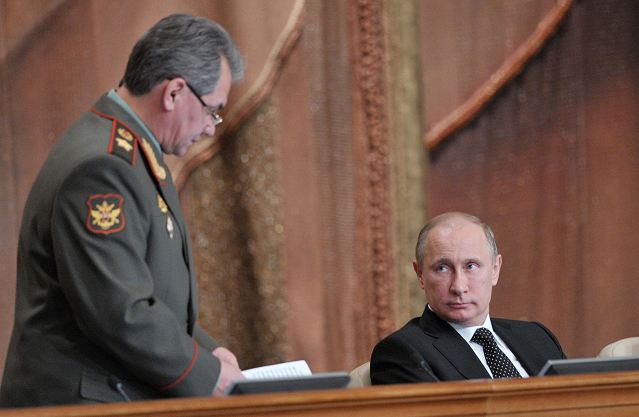| a | |||
Defence & Security News - Russia |
|||
| Thursday, December 12, 2013 11:35 AM | |||
| Russia to increase defense spending by nearly two-thirds to $97 billion by 2016. | |||
|
President Vladimir Putin and Defense Minister Sergei Shoigu laid out Russia’s
arms procurement roadmap for 2014 on Tuesday, December 10, 2013, including
new strategic missiles, tanks and aircraft. “In 2014 more than 40
of the newest intercontinental ballistic missiles, 210 aircraft, and more
than 250 armored vehicles will enter into the armed forces,” President
Putin said at a meeting of the country’s top military leadership. |
|||
 Russian President Vladimir Putin (R) and Russian Defense Minister Sergei Shoigu (L) during a meeting at the Defense Ministry in Moscow, Russia. |
|||
Russia will see
the continued deployment of the Yars
ICBM to the Strategic Missile Forces and the Iskander
tactical ballistic missile to the ground forces next year, Shoigu said.
Two new ballistic missile submarines will also become fully operational
next year, he added. |
|||
Russia to increase defense spending by nearly two-thirds to $97 billion by 2016 1212133
- Posted On














